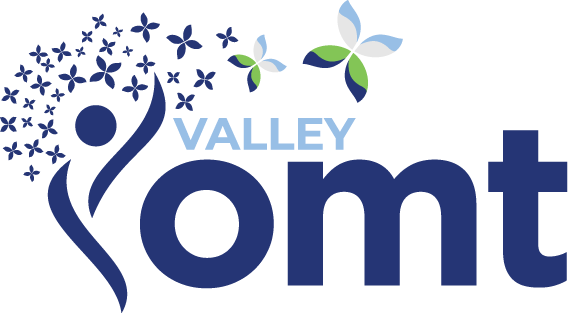What Are the Signs and Symptoms of Orofacial Myofunctional Disorder (OMD)?
Many children and adults go undiagnosed or improperly diagnosed from issues stemming from Orofacial Myofunctional Disorders (OMD) from their primary care providers, dentists, or orthodontists when in reality their symptoms and problems are rooted in the function and rest posture of the muscles in the face, neck and jaw. Did you know that healthy rest posture is tongue up, lips closed, breathing through your nose?
You or a loved one may be experiencing one or multiple issues from an OMD and unhealthy rest posture and have been dealing with them for years with no relief, but that can change with Valley OMT! Here are some common side effects and associated issues of OMD’s:
Breathing Through the Mouth Instead of the Nose
You know how you’re supposed to breathe through your nose most of the time? People with OMD’s often breathe through their mouths, even when they’re not exercising or stuffed up from a cold. Signs of mouth breathing are dry mouth and chapped, cracked lips, chronic gingivitis and plaque build up on front teeth. Mouthbreathing may be causing poor quality of sleep, disordered breathing at night and negatively impacts jaw growth and how teeth will erupt. One of the biggest signs is the roof of the mouth is very high and the upper jaw is narrow. This will change the profile or look of a person’s face over time.
Learn more about Mouth Breathing & OMD
Speech Challenges
If words don’t come out quite right, like “S” sounds turning into a lisp, or if it feels like speaking takes extra effort, that could be a sign. Slushy or unclear speech can also be a sign that saliva handling is difficult and is a sign of muscle dysfunction. Kids and even adults with OMD’s sometimes have a hard time pronouncing certain letters or perhaps have been in speech therapy for a long time, which can make them shy about talking in front of others.
Learn more about Speech Challenges & OMD
Problems with Eating or Swallowing
Ever notice someone pushing their tongue forward when they’re swallowing? That’s something called a tongue thrust, and it’s a pretty common OMD. It can make eating messy or uncomfortable and might even cause problems with digesting food properly. Sometimes a picky eater isn’t actually picky due to taste it’s because they can’t chew or swallow properly so they are advertent to food.
Learn more about eating or swallowing issues & OMD
Dental Issues
Crowded teeth, a bite that doesn’t line up quite right, or braces that just don’t seem to fix the problem? These might be connected to an OMD. The way your tongue and mouth muscles rest when you’re awake and asleep can have a big impact on how your teeth and jaw develop.
Learn more about the impact of OMD & dental health
Restless Sleep
People with OMD’s often have trouble getting a good night’s sleep. They might snore or even have sleep apnea—a condition where breathing stops and starts throughout the night. This can leave them feeling tired and cranky during the day, even if they think they got plenty of sleep. It’s more about quality of sleep even if the quantity is there. Did you know that the only time growth hormone in children is produced is during deep sleep? Restless sleep indicates a person is in light sleep more than deep.
Learn more about sleep issues & OMD
Posture Problems
It might sound unrelated, but posture can be a big clue. If someone always seems to have their head pushed forward, chin jutting out, or shoulders slouching or rounded, it could be their body’s way of trying to compensate for breathing or muscle issues.
Other Signs to Watch For
There are lots of little things that might not seem like a big deal at first, like drooling past the toddler years, struggling to close the lips completely, or having trouble chewing certain foods. Add them all together, and they might point to an OMD.
Why It Matters
The symptoms of OMD’s aren’t just inconveniences—they can impact a person’s overall health and confidence. For instance, mouth breathing can lead to unhealthy jaw growth or gum problems, while restless sleep can make it hard to focus at work or school. Speech issues might even make social situations tough to navigate.
What Can You Do?
If any of this sounds familiar, don’t worry—you’re not alone, and there are ways to help. This might include exercises to strengthen the muscles in the face and mouth or other treatments to address specific issues.
Every case is different, but taking steps to address the symptoms early on can make a big difference. The key is to catch it, understand it, and work with someone who knows how to help.
Do you think an OMD might be affecting you or someone in your family? Reach out to our team today and start the journey to healthier habits and happier days!
